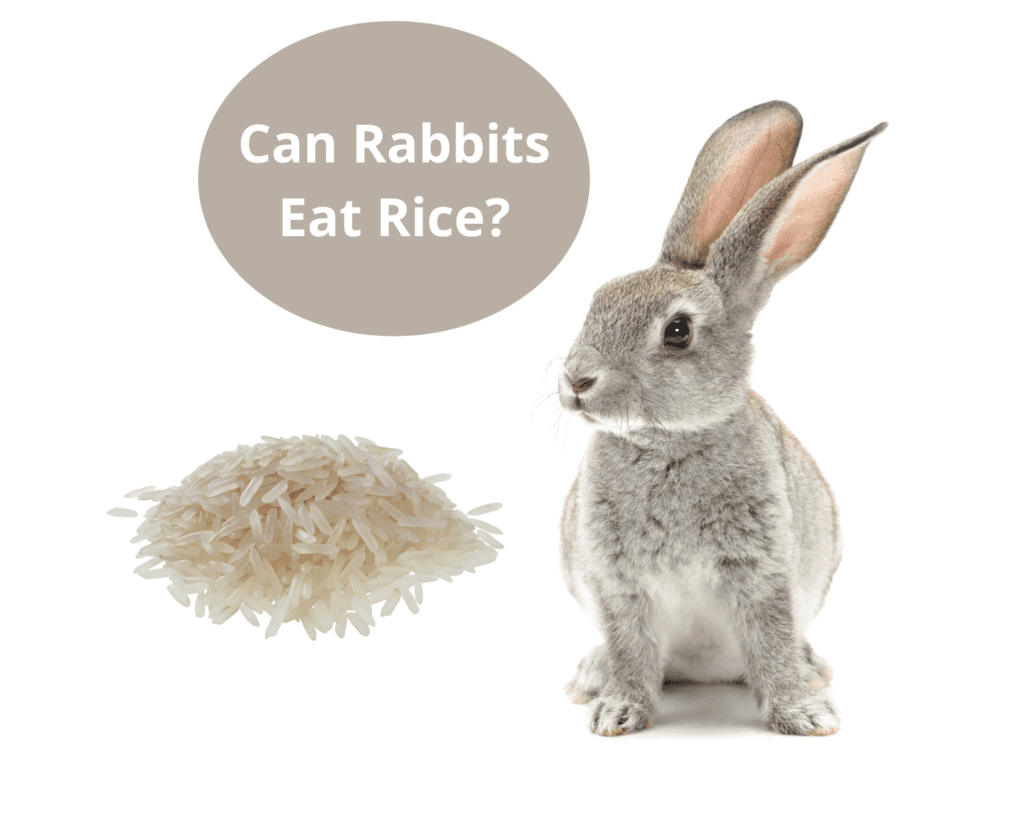If you own a rabbit, you may have wondered if they can eat rice. Rice is a grain that comes in different varieties and is used as a staple food by many cultures since it can pair well and amplify different flavors and seasonings.
So, should you feed your bunny rice as a treat?
Can Rabbits Eat Rice?
Rabbits should not eat rice in any form since it is high in carbohydrates and has very little fiber, which is crucial in rabbits’ diets. While rice is not poisonous to rabbits, it has no nutritional benefit, and it could potentially lead to health problems like blockages or gastrointestinal issues.
Nutritional Information Of Rice
Rice has very little nutritional value for rabbits. It is mainly composed of carbohydrates and is mostly empty calories.
Rice is also mostly made up of water, accounting for 70% of its weight. The carbohydrates in rice are also mostly starch, which is not healthy for rabbits in high amounts.
There are also many compounds in rice that are not beneficial for rabbits. Rice high in amylose is hard to digest, and rice high in amylopectin can lead to high blood sugar. White rice has virtually no fiber, while brown rice contains a higher concentration of fiber.
It has also been found that some rice, particularly brown rice, contains heavy metals like lead, arsenic, and nickel, which can lead to health issues if consumed in large quantities.
Rice also does not have many of the vitamins and nutrients found in other snack options for your bunny. White rice has minimal vitamins and minerals, while brown rice is higher in some nutrients such as manganese, niacin, and thiamin.
Potential Hazards To Watch For When Feeding Rice
Rice is dangerous for rabbits to consume because they cannot properly digest it. Rabbits have very sensitive digestive tracks and should not be fed any type of grain.
Rice can cause bloating and diarrhea and give your rabbit painful cramps and stomach aches. When consumed in large quantities, it can even lead to gastrointestinal stasis, which can be fatal.
If your rabbit eats too much rice that is high in amylopectin, since rice is already high in calories and carbohydrates, it can spike their blood sugar and put them at risk for diabetes and obesity.
Benefits To Feeding Your Rabbit Rice
There are virtually no benefits to feeding your rabbit rice because it does not contain the nutrition, vitamins, and minerals that rabbits need in their diets.
While brown rice has more fiber than white rice, the high amount of carbohydrates it contains limits any nutritional value.
Best Ways to Feed Rice And How Much Rice Can a Rabbit Safely Have?
No type of rice is healthy for your rabbit to eat. White rice is the most harmful option since it has no nutrients that rabbits need in their diet. While brown rice has more vitamins and contains fiber, it is tough for rabbits to digest.
Bunnies also should not eat rice whether it is cooked or uncooked. Uncooked rice can expand when it comes into contact with water in your rabbit’s stomach which can be dangerous.
Feeding your rabbit rice off your plate also is not a good idea since rice is usually seasoned with other spices that may upset your rabbit’s stomach.
While rabbits should not be fed rice in their diet, do not panic if your rabbits eat a few grains that fall on the floor. Rice is not poisonous to rabbits, and consuming a small amount will not hurt them.
Instead of feeding your rabbit grains like rice, make sure they have a diet that is mostly filled with fresh hay, fresh leafy greens, and vegetables. Opt for fruits high in fiber, vitamins, and minerals like bananas, apples, blueberries, strawberries, and mangos for a small snack to satisfy your bunny’s sweet tooth.
As a general rule, only give them one to two tablespoons of treats a couple of times a week to ensure they are not consuming too many snacks since they have a sensitive digestive system.
Conclusion
Rice is not good for your bunny as it has no nutritional benefits and is hard for your pet to digest. Instead of giving your rabbits grains, opt for fruits and vegetables high in fiber, vitamins, and minerals once or twice a week in small quantities as a snack.

